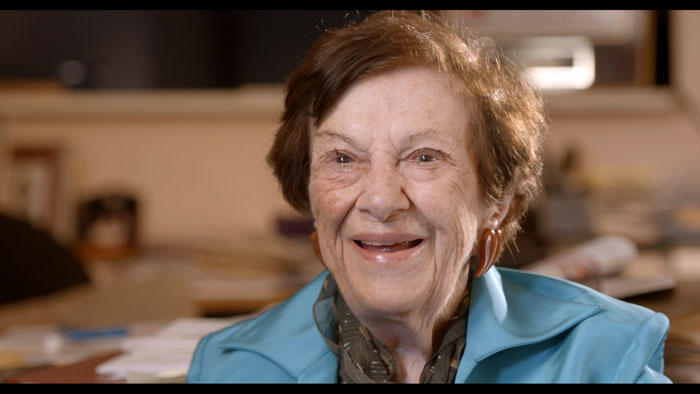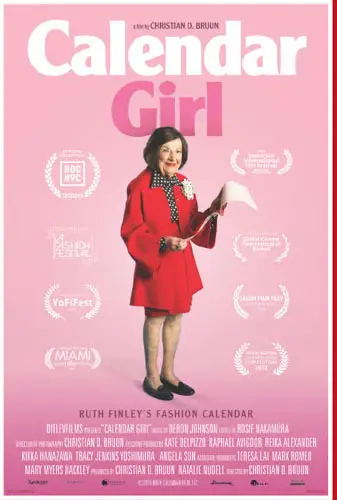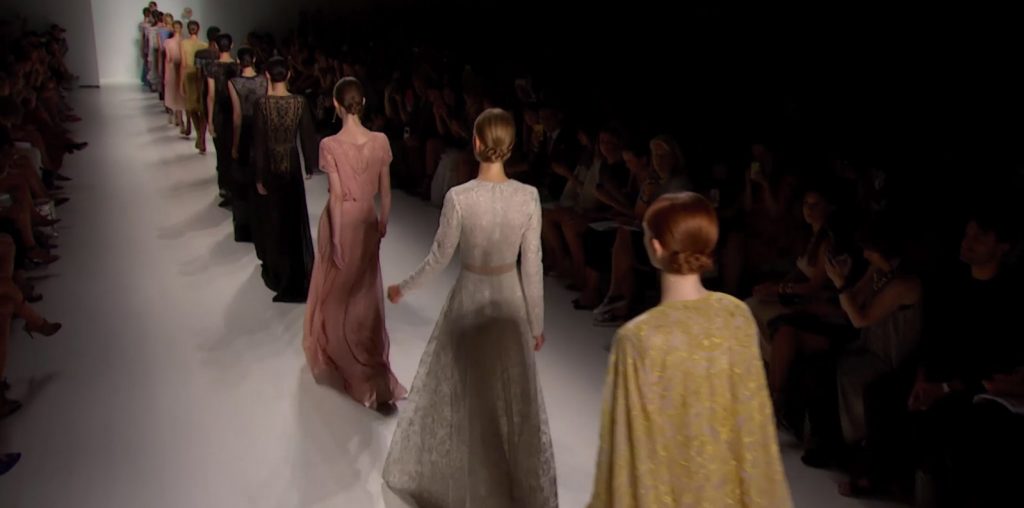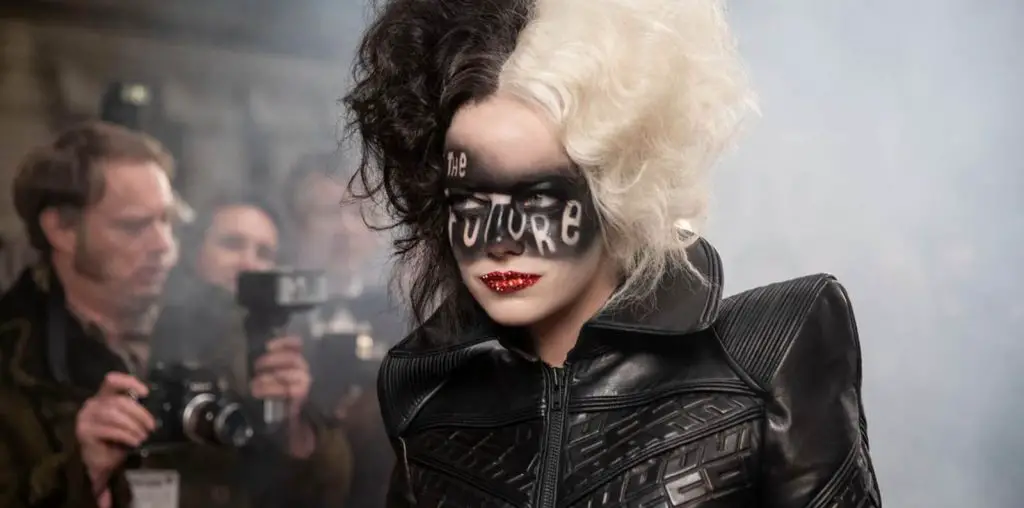
NOW IN THEATERS! There’s always a person considered the glue or the brain trust to how things operate on a grand level in any thriving industry. This individual is usually unknown to the world but worshiped by those on the inside. Ruth Finley, the subject of Christian D. Bruin’s Calendar Girl, is exactly that kind of person. She is a tiny, distinguished New York City lady whose love of fashion as a young woman gave birth to the industry’s most valuable and integral element of the organization: the Fashion Calendar. A pink printed publication of every fashion event occurring throughout New York City, invented by Finley. She owned and operated the Fashion Calendar, making her a living icon since the 1930s.
What makes this a remarkable story and historical documentary is that Finley is an incredibly affable and impressive woman who managed to handle the divas and queens of the fashion industry. Her uncanny ability to organize, mediate and balance New York Fashion Week as it rose to enormous popularity overshadowing the fashion meccas of Milan and Paris is a remarkable feat to watch unfold. More impressive is how the writer-director presents Calendar Girl as a biopic. Bruun not only focuses on Finley’s role in the rise of fashion designers and the billion-dollar business it has become but also examines how the fashion industry evolved to its point of decadence and privilege.
Bruun chooses angles, people, and places with jazzy mood music to capture the Big Apple as the center of metropolitan life. He interviews (or uses sound bytes from) prominent fashion designers, including Carolina Herrera, Nicole Miller, Diane von Furstenberg, Besty Johnson, Nanette Lepore, and many more. He even sits down with the creator of New York Fashion Week, Fern Maliss, who all worship Finley, rightfully so. The filmmaker also captures the fashion culture of Finley’s time with clips of New York Times photographer Bill Cunningham. His Sunday photo spreads of New York City society, and on-the-street fashion trend snapshots were a ritual must-see in the Style Section.

“…[Ruth Finley] gave birth to…the Fashion Calendar.”
Yet, Calendar Girl goes even deeper digging into the archives of Fashion Week fashion, showing how they started in rooms in the Pierre and The Plaza Hotels where the executives of Bergdorf Goodman and Bloomingdales would come to see the latest trends with unknown designers. And Finley was there to tell them who, what, when, and where. She even included theater and other events to fill the calendar in the early days. Bruun chats with her three children and follows Finley around New York’s Fashion Week, where she is treated like royalty. She was divorced and remarried, which was highly usually for her era. Bruun gets Finley to share personal details with humor, class, and grace.
As we celebrate Finley, we also watch the torch of the Fashion Calendar change hands and move into the digital age. The Council of Fashion Designers of America (CFDA) buys it from her, so we watch Finley pack up a lifetime of work in her iconic New York City office. This is a tear-jerking moment due to the relationship the filmmaker achieves between subject and audience.
As we watch Finley celebrate her 95th birthday and enjoy the company of her boyfriend, we see how much she loved the life she created in New York City with her family, friends, and old-school fashionistas. She is dignified, wise, and loving, traits that may not be so readily associated with today’s fashion world. Finley loves fashion and appreciates beauty and beautiful creations, which come through earnestly. By so thoroughly documenting the instrumental value of the Fashion Calendar, Calendar Girl becomes an engaging historical piece. It is made all the more satisfying by the humor present in its subject (plus, the name dropping is unbeatable, thanks to all the fashion icons being talked to/about), even if the film is a bit overboard with the talking heads.

"…an engaging historical piece."



[…] Calendar Girl […]